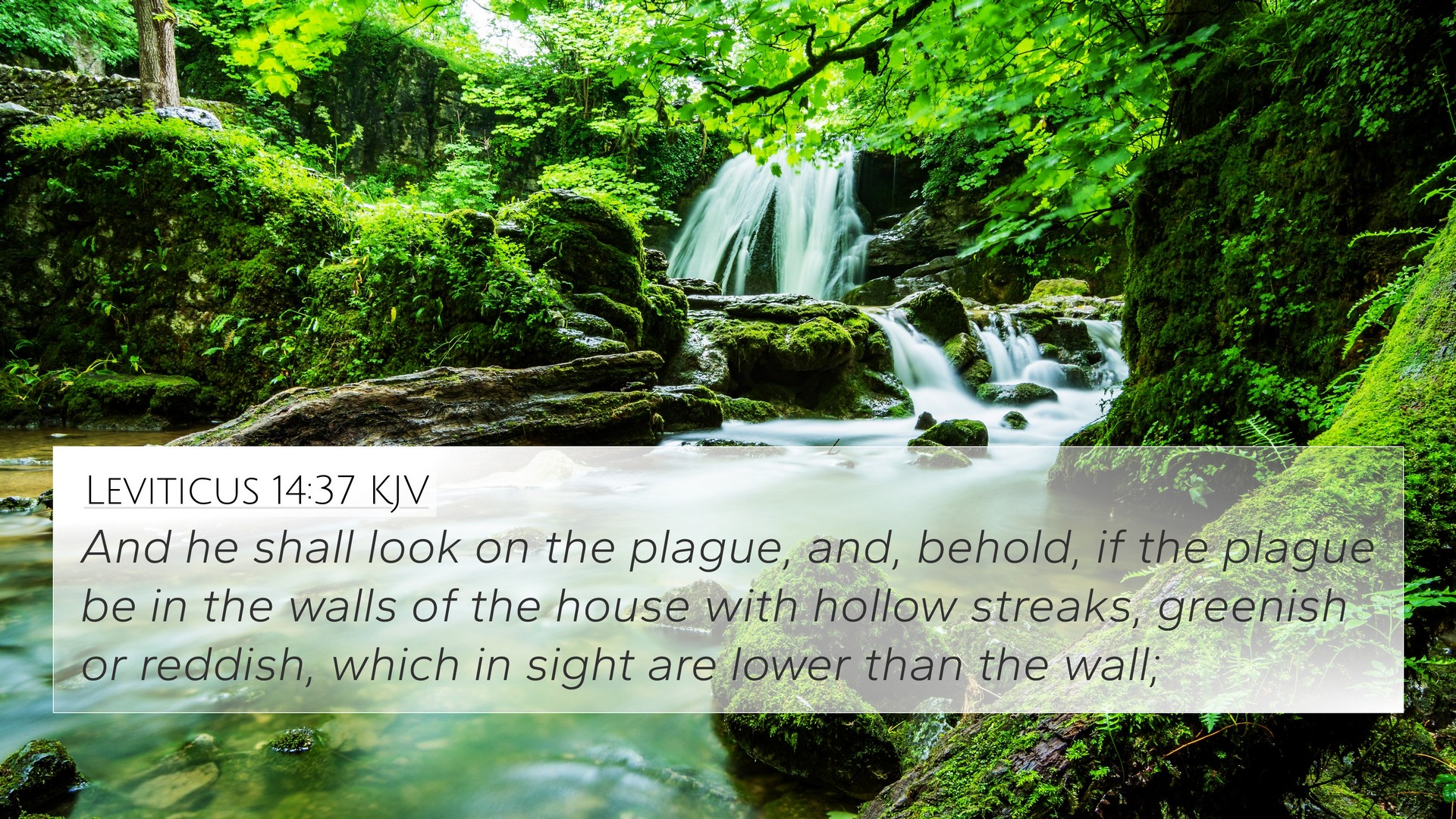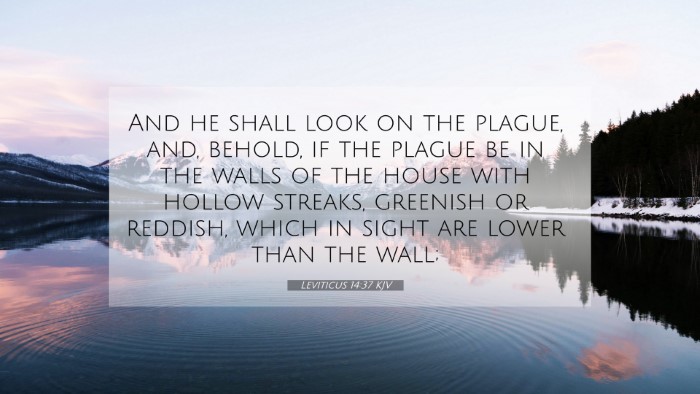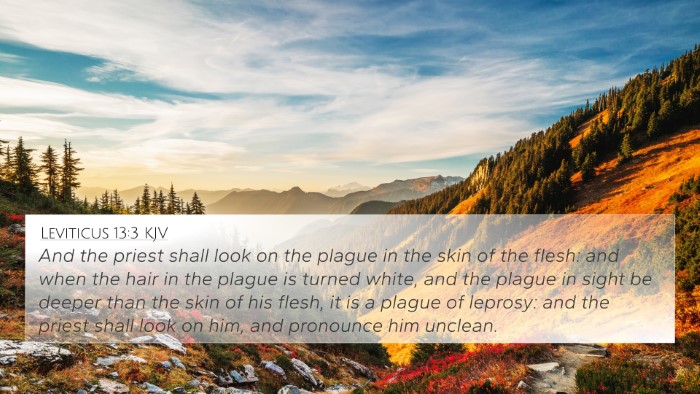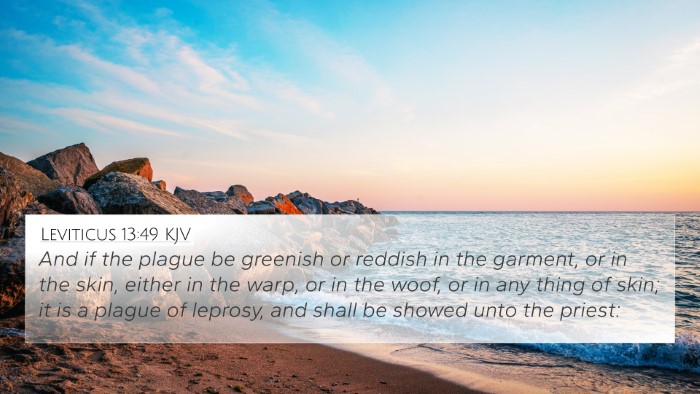Understanding Leviticus 14:37
Leviticus 14:37 states:
"And he shall look on the plague, and, behold, if the plague be in the walls of the house with hollow strakes, greenish or reddish, which in sight are lower than the wall;"
This verse is part of the instructions given to the Israelites regarding the ceremonial cleansing of a house that has experienced a form of leprosy, or a skin disease. The focus is on diagnosing the condition by examining the walls of the structure.
Commentary Insights
The insights provided by various public domain commentaries help clarify the implications and meanings within this verse.
- Matthew Henry: Henry emphasizes the significance of the priest’s role in examining the house. He notes the importance of recognizing spiritual leprosy in one’s dwelling, akin to the leprosy of sin in a person’s life. He encourages believers to be vigilant about the condition of their spiritual living spaces, suggesting a parallel to the necessity of maintaining purity within oneself.
- Albert Barnes: Barnes provides a detailed account of the physical description of the plague, indicating that the "hollow strakes" refer to the imperfections that may appear in a house. He connects this to the broader theme of God’s concern for cleanliness and holiness, illustrating how external symbols (like a clean house) reflect internal purity and dedication to God.
- Adam Clarke: Clarke elaborates on the context in which the Israelites were instructed to maintain their homes. He suggests this reflects God’s desire for His people to live in environments that honor Him. Clarke also points out that the inspection of a house for leprosy could serve as a metaphor for self-examination in faith.
Bible Verse Cross-References
Leviticus 14:37 draws connections to various other passages in the Bible. Here are notable references:
- Leviticus 13:47-59 - Details about the laws concerning leprosy in garments, underscoring the theme of purity and divine instructions.
- 1 Kings 8:38-39 - A call for confession and recognition of sin, resonating with the need for a thorough inspection of one’s life.
- James 4:8 - Encouragement to "cleanse your hands," symbolizing the need for internal and external purification.
- 2 Corinthians 7:1 - A reminder to cleanse ourselves from every stain of the flesh and spirit, tying into the inspection idea.
- Psalms 139:23-24 - A deep plea for God to search one’s heart, reflecting the introspection involved in the leprosy examination.
- Ezekiel 36:26 - God’s promise to give a new heart and spirit, relating to the cleansing of not just physical spaces but spiritual renewal.
- Revelation 21:27 - Describes the New Jerusalem as free from anything impure, further establishing the importance of holiness.
Thematic Connections
This verse and its commentaries invoke thematic connections underscoring the necessity for cleanliness, both spiritual and physical, mirroring the sanctity that God demands from His people.
Conclusion
In summary, Leviticus 14:37 serves as an important reminder of God's standards of holiness. The involvement of the priest showcases the community aspect of faith and the need for accountability among believers.
For deeper insights into the cross-referencing of biblical texts, tools such as a Bible concordance or a Bible cross-reference guide can assist in uncovering the connections between Bible verses and themes.
To enrich your study, consider exploring methods of cross-referencing Bible study that can highlight the inter-Biblical dialogue present in the scriptures, leading to a more comprehensive understanding of God’s intentions and teachings.
Further Study Suggestions
If you're seeking to identify specific connections, look for:
- How to find cross-references in the Bible
- Identifying connections between Old and New Testament
- Bible cross-references for sermon preparation






